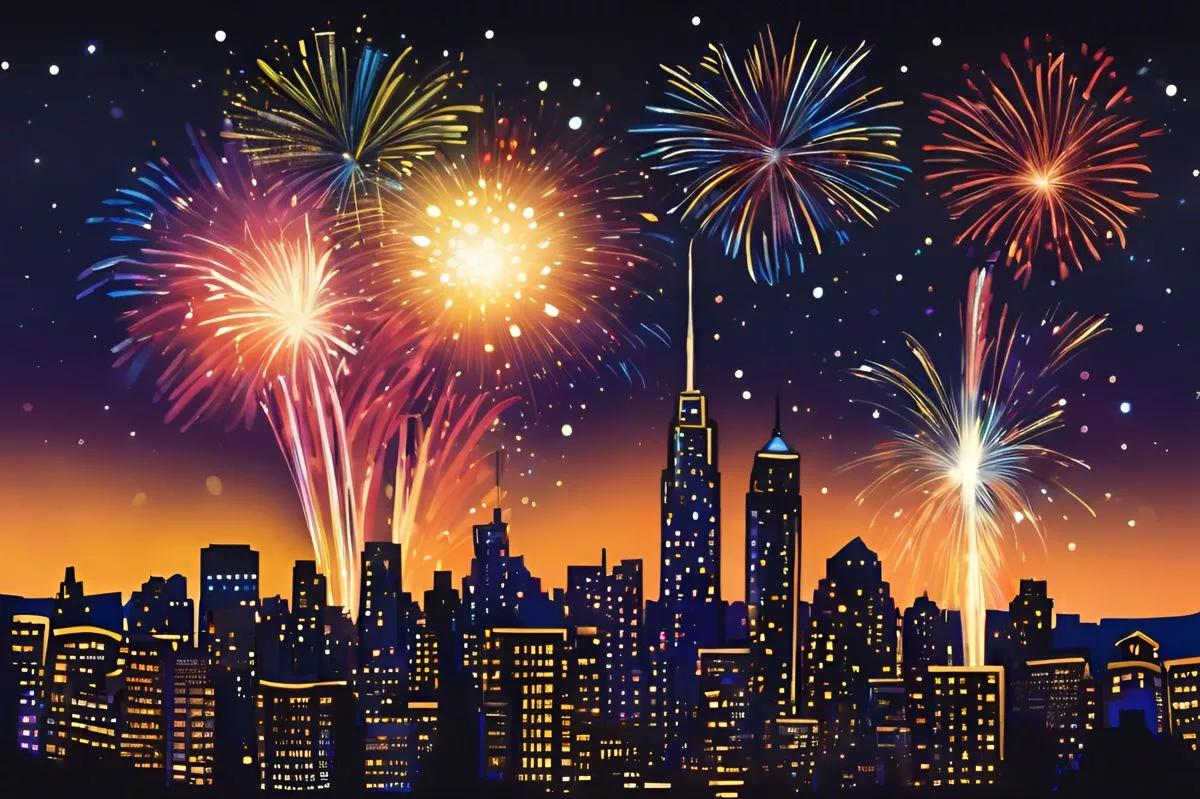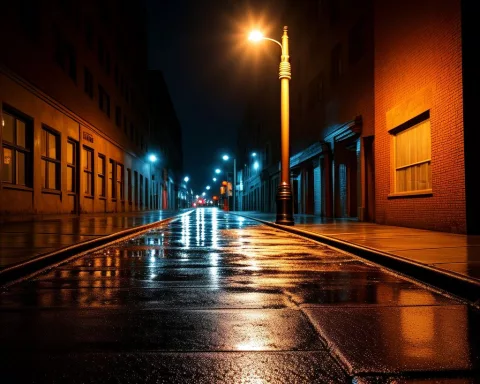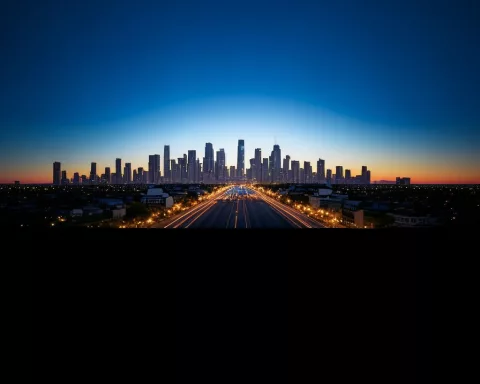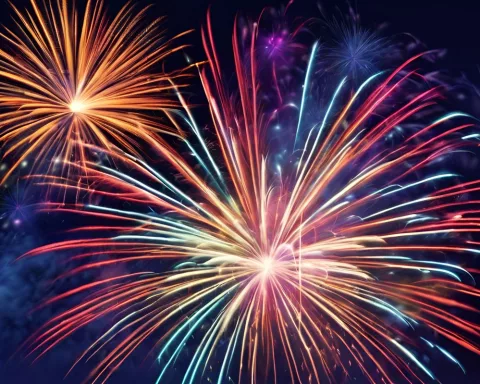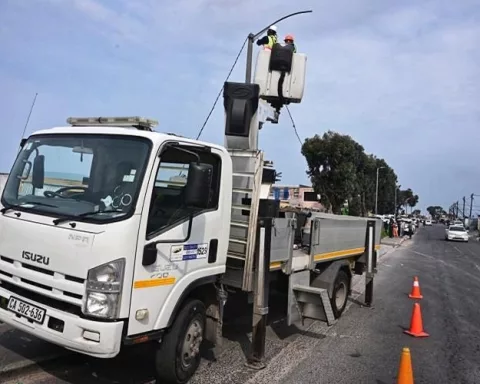Cape Town is getting ready for exciting celebrations like Diwali and Guy Fawkes Night, but there are important rules about fireworks! To keep everyone safe, people must get permission from the police and have their event checked by the Fire and Rescue Service. While many love the colorful displays, some worry about noise and the danger to pets and wildlife. As the city balances fun traditions with safety, it’s clear that thoughtful celebrations can light up the sky without causing chaos below.
What are the regulations for fireworks in Cape Town?
In Cape Town, individuals or organizations must obtain proper authorization to host fireworks displays. This includes permission from the South African Police Service (SAPS) and a site assessment by the Fire and Rescue Service. Safety and environmental concerns guide these regulations, ensuring public well-being during celebrations.
A City in Anticipation
As October fades into November, Cape Town transforms as vibrant festivities approach. The city gears up for Diwali and Guy Fawkes Night, occasions marked by lively celebrations and dazzling firework displays. However, amidst this festive atmosphere, the City of Cape Town reiterates the importance of adhering to regulations concerning fireworks. This reminder is not a new directive but part of a longstanding policy designed to protect public safety and reduce disruptions.
In recent years, Cape Town has seen a modest decline in incidents and complaints related to fireworks, yet the issue continues to stir debate among residents. This discourse took a significant turn in 2019 when the city decided to eliminate designated fireworks areas for events like Diwali, Guy Fawkes Night, and New Year’s Eve. The decision stemmed from concerns about safety and the potential for chaos, marking a major shift in policy that aligns with broader societal worries about public safety and environmental impact.
As the city prepares for another year of celebrations, it maintains a firm stance: individuals or organizations planning to host fireworks displays must secure proper authorization. The process involves obtaining permission from the South African Police Service (SAPS), in accordance with the National Explosives Act. This legislation highlights the inherent risks associated with fireworks and emphasizes the need for careful handling and regulation. Once SAPS approval is granted, applicants must collaborate with the Fire and Rescue Service’s Fire Life Safety Section for a comprehensive site assessment to ensure adherence to safety standards, including the absence of nearby fire hazards.
Navigating the Approval Process
Planning a fireworks event in Cape Town requires more than just securing permits. When an event expects over 200 attendees or demands substantial infrastructure, organizers must also obtain event permission from the city. This layered approval process underscores Cape Town’s commitment to safeguarding its residents and preserving the environment amidst cultural celebrations.
October and November, months synonymous with fireworks, often see a rise in complaints from residential areas. This increase reflects the ongoing tension between those who view fireworks as an integral part of cultural festivities and those who consider them a disturbance. Beyond disrupting human lives, fireworks pose significant threats to pets and wildlife, causing distress and potential harm.
JP Smith, the Mayoral Committee Member for Safety and Security, captures a sentiment shared by many residents: “Although the popularity of fireworks has decreased in recent years, there remain those who find joy in setting off fireworks and terrorizing their neighborhoods and pets. The trauma and stress, particularly in communities wracked by gun violence, is something that we all can do without.” His remarks highlight the broader societal impact of fireworks, especially in areas already troubled by violence and unrest.
Challenges of Enforcement
Regulating fireworks presents unique challenges. Offenders frequently evade detection, as pinpointing the exact location of fireworks proves difficult. The fleeting nature of these offenses complicates enforcement efforts, making it a challenging task for authorities. Smith suggests that a national ban on fireworks might be the ultimate solution, echoing the views of many who advocate for stricter control measures.
Until such a ban is enacted, Cape Town encourages citizens to report illegal fireworks sales. By targeting the supply chain, authorities aim to diminish the presence of unlawful fireworks on city streets. Residents can report incidents or suspicious activities by contacting the City’s Public Emergency Communication Centre, a crucial step in combating illegal fireworks usage.
The conversation around fireworks regulation is not unique to Cape Town. Cities worldwide grapple with the task of balancing cultural traditions with public safety concerns. In many parts of the world, fireworks hold deep cultural and historical significance. For example, during Diwali, the Hindu festival of lights, fireworks symbolize the triumph of light over darkness. Similarly, Guy Fawkes Night in the UK commemorates the thwarting of a plot to destroy the House of Lords in 1605, with fireworks representing the explosives that were never detonated.
Art, Culture, and Responsible Celebration
Fireworks have inspired artistic expression across generations. The fleeting beauty of fireworks captivates artists, from painters capturing bursts of light against night skies to filmmakers using them as symbols for transient moments of joy or revelation. However, while enchanting, the challenge remains to enjoy these displays responsibly.
In Cape Town, as in other cities, the focus on public safety continues to shape the discussion around fireworks. The city’s approach reflects a growing awareness of the need to reconcile cultural traditions with modern concerns about safety, environmental impact, and community well-being. As Diwali and Guy Fawkes Night draw near, Cape Town stands at a crossroads, striving to honor tradition while adapting to contemporary demands.
Cape Town’s narrative is one of balance and negotiation, preserving cultural heritage while embracing new realities. The city’s ongoing efforts to regulate fireworks usage resonate with communities around the world facing similar challenges. As the skies light up this year, the echoes of these debates will undoubtedly linger, influencing the future of celebrations in Cape Town and beyond.
FAQ: Cape Town’s Fireworks Policy
What regulations must be followed for fireworks displays in Cape Town?
In Cape Town, individuals or organizations must obtain permission from the South African Police Service (SAPS) and have their event assessed by the Fire and Rescue Service. This ensures compliance with safety and environmental standards during fireworks displays.
Why has Cape Town eliminated designated fireworks areas for celebrations?
Cape Town decided to eliminate designated fireworks areas due to concerns about safety and the potential for chaos. This shift in policy reflects a growing awareness of public safety and environmental impacts, particularly in light of community tensions surrounding fireworks usage.
What is the process for obtaining permission to host a fireworks event?
To host a fireworks event, organizers must first secure approval from SAPS. If the event involves over 200 attendees or requires significant infrastructure, additional event permission from the city is needed. Following SAPS approval, a comprehensive site assessment by the Fire and Rescue Service is mandatory.
What are some concerns regarding fireworks in residential areas?
Fireworks often lead to a rise in complaints from residents, particularly regarding noise and the distress caused to pets and wildlife. Many community members express concerns about the trauma and stress fireworks can induce, especially in neighborhoods already affected by violence.
How can residents report illegal fireworks sales or usage?
Residents are encouraged to report illegal fireworks sales or suspicious activities to the City’s Public Emergency Communication Centre. Targeting the supply chain is vital in reducing unlawful fireworks presence on the streets.
What cultural significance do fireworks hold in Cape Town?
Fireworks are integral to cultural celebrations like Diwali and Guy Fawkes Night. They symbolize light triumphing over darkness and commemorate historical events. However, the city is striving to honor these traditions while addressing modern concerns about safety and community well-being.

